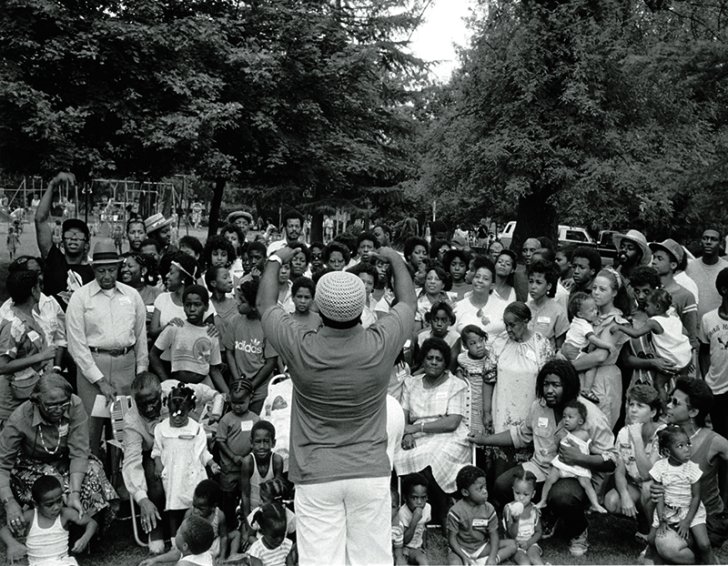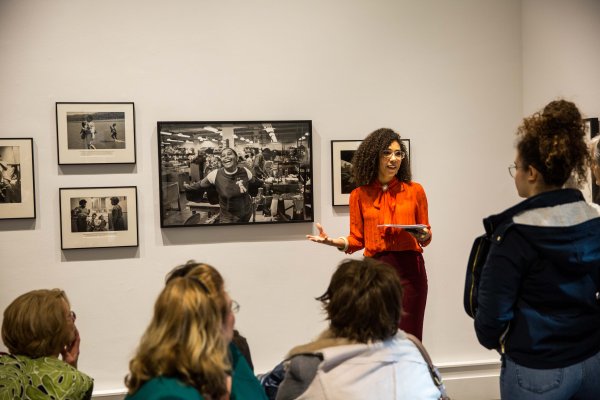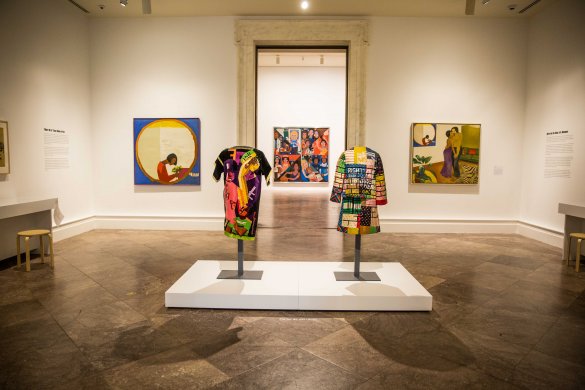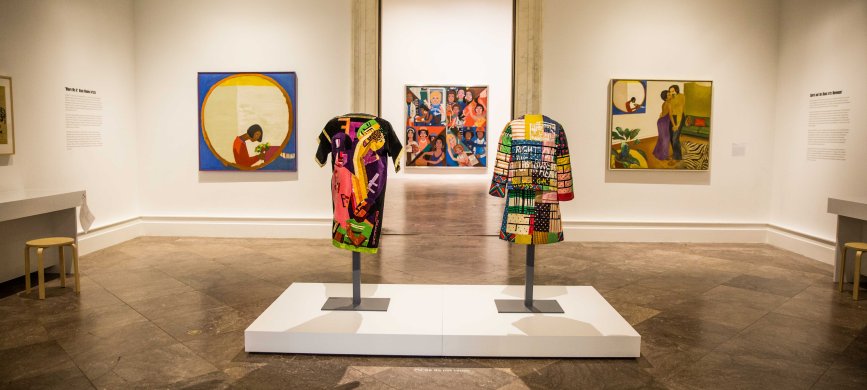During the 1980s, artists and activists fought on multiple fronts against growing conservatism in what became known as the “culture wars”: a broad cultural backlash against the progressive gains of the Black Power, Civil Rights, Ecology, Gay Rights, and Women’s Movements. Black women led their fellow artists in protest, questioning conservative viewpoints while continuing to struggle against gender- and race-based discrimination.
Living through the cultural shifts of that decade, these artists were increasingly skeptical of power structures and authority. They examined how images and language—whether in art, media, or advertising—shape and often distort the representation of identity. Drawing on their own subjectivity and personal experience, they deconstructed how dominant political and cultural narratives undermine and misrepresent women and communities of color.
Carrie Mae Weems’s Family Pictures and Stories was conceived as an explicit rebuke to the Moynihan Report: a highly controversial white paper published in 1965 by the Department of Labor that blamed “the deterioration of the fabric of Negro society” on weak family structures. Incorporating candid photographs of her own family with written text and audio recordings that document their history, Weems creates a deeply felt and realistic account of black family life in the United States.



